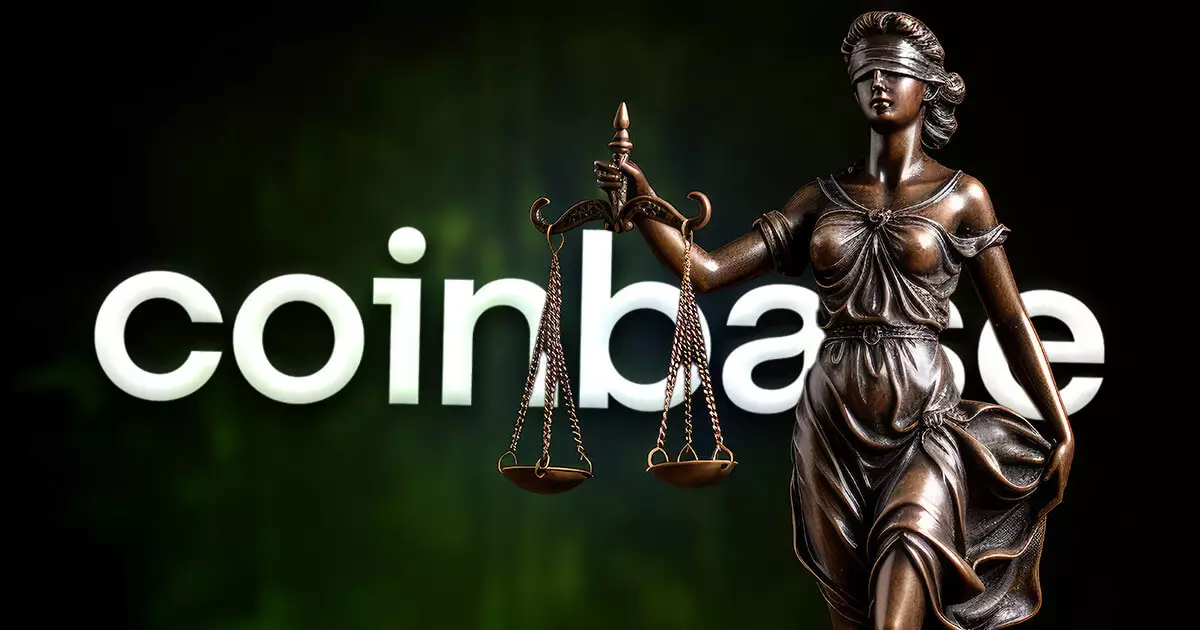In an escalating tension within the cryptocurrency sphere, BiT Global has instigated legal proceedings against Coinbase, a behemoth in the digital asset trading landscape of the United States. The lawsuit, filed on December 13, alleges that Coinbase engaged in anti-competitive practices by unceremoniously delisting wrapped Bitcoin (WBTC) in favor of its proprietary wrapped Bitcoin product, Coinbase Wrapped Bitcoin (cbBTC). This case highlights the ongoing struggles within the cryptocurrency market, where dominance, competition, and regulatory compliance often collide.
BiT Global banked heavily on the assertion that Coinbase’s maneuver to remove WBTC was not merely an operational decision based on adherence to listing standards but rather a calculated strategy to inhibit competition and solidify Coinbase’s market power. According to BiT Global’s claim, the launch of cbBTC was coupled with practices that sidestepped the natural competitive dynamics of the cryptocurrency ecosystem. The lawsuit insinuates that Coinbase is leveraging its established position to obfuscate market possibility, undermining the decentralized ethos that many in the crypto community advocate for.
The complaint draws particular attention to Coinbase’s stated intent to not charge wrapping or unwrapping fees “today,” suggesting underlying motives for future fee structures—potentially aiming to monetize the cbBTC proposition once WBTC was marginalized. This narrative of premeditated monopolistic behavior raises significant concerns surrounding the integrity and dynamics of competition in the cryptocurrency market.
Exposing Selective Standards in Listings
BiT Global has countered Coinbase’s justification for delisting WBTC by pointing out the recent inclusion of less reputable tokens, such as meme coins like PEPE and MOG. This juxtaposition raises profound questions about the authenticity of Coinbase’s purported commitment to stringent listing standards. The fact that coins with arguably lesser utility were added to the platform while WBTC was removed paints a picture not of quality control, but rather of opportunistic maneuvering to hoard market share.
Such actions signal a troubling trend for decentralized finance (DeFi) users, who rely on the integrity of such platforms. The implications extend beyond the immediate profits of participatory exchanges; they threaten the very foundation upon which decentralized finance is built, often bending to centralized forces that prioritize profit over innovation.
At the core of BiT Global’s legal initiative lies a desperate need to restore equilibrium in a market increasingly dictated by financial titans. The lawsuit also seeks to halt the delisting of WBTC, a move perceived as both anti-competitive and detrimental to decentralized innovation. BiT Global’s foray into custodial services for WBTC showcased its ambition to play a critical role in the realm of wrapped assets, particularly following BitGo’s relinquishment of sole custody. This change raised alarms within the DeFi community due to the connections of Justin Sun, further complicating the narrative surrounding trust and stability in digital assets.
With market stabilization hanging in the balance, BiT Global’s case is not merely focused on its own interests but addresses broader market implications. The removal of established wrapped assets invites volatility and a reevaluation of collateral assets in DeFi protocols. Coinbase’s efforts to position cbBTC as a dominant wrapped Bitcoin product highlight the tensions between established players and emerging competitors.
Current Landscape and Future Directions
Coinbase’s cbBTC, having swiftly ascended to a significant standing with a market cap of around $2 billion, now threatens WBTC, which has experienced a worrying decline in token supply amid dwindling trust. The juxtaposition of these two products encapsulates the competitive landscape characterizing the wrapping market of Bitcoin. While Coinbase has successfully captured attention, the ongoing struggle for legitimacy and market foothold continues as BiT Global seeks to challenge the narrative.
As the lawsuit unfolds, the specter of regulatory involvement may loom larger than ever, potentially ushering in stricter standards that could redefine crypto operations. The long-term stability of WBTC and by extension, the wrapped Bitcoin market, remains uncertain, poised precariously between competition and collusion. The outcome of this legal battle may very well shape the contours of market strategy and innovation for years to come.
The conflict between BiT Global and Coinbase encompasses significant themes in today’s cryptocurrency landscape, including competition, regulation, and the ideals of decentralization. As this legal saga progresses, it will serve as a focal point for examination by industry insiders and regulators alike, making it clear that the path for wrapped assets like Bitcoin is fraught with challenges and significant stakes.

